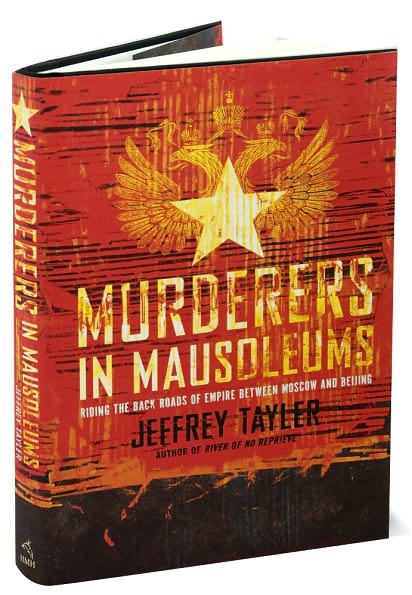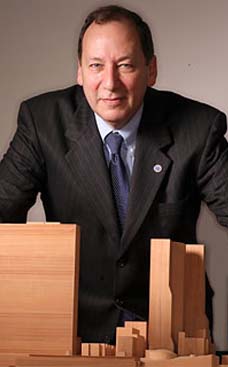
Tayler takes very little luggage with him aside from the essentials once recommended by Alexander Solzhenitsyn: "Own only what you can carry with you; know language; know countries; know people. Let your memory be your travel bag." An American expatriate based in Russia since 1993, Tayler has traveled Eurasia's back roads extensively over the years, using his fluency in Russian and Turkish. As he explained in an interview for Vagabonding, a blog for travelers: "Russia has made me a writer . . . given me a wife, and at times nearly cost me my life." Perhaps his intimate knowledge of the region is the reason why Tayler brings such fervor to both his craft and his subject. Inspired by Russian literature, including Soviet-era tape recordings of Russians reading the poems of Mikhail Lermontov, he writes, "The combination of their impassioned recitals and the poet's concise yet dreamy verbiage did much to establish Russian, tender, evocative and euphonious, as the dialect of my heart." At times he displays poetic flair. On reaching the Caspian Sea, in the Dagestani city of Makhachkala, he writes: "I awoke to the taunting, boisterous yelps of seagulls. Drafts warm and briny teased my window's curtains, gauzy yellow filters irradiated by the southern sun and spangled with glints from the sea, which spread glaucous and frothy beyond the minarets and apartment buildings and satellite disks." Jeffrey Tayler served as a Peace Corps Volunteer in Morocco. He has published numerous articles in Atlantic Monthly, Spin, Harper's and Condé Nast Traveler and is a regular commentator on NPR's "All Things Considered.
Jeffrey Tayler writes "Murderers in Mausoleums"
What's Between Russia and China?
Disillusionment is rife in the oil-rich, post-Soviet hinterland.
Reviewed by Susan Eisenhower
Sunday, January 25, 2009; Page BW11
MURDERERS IN MAUSOLEUMS By Jeffrey Tayler
Houghton Mifflin Harcourt. 306 pp. $24
Travel books bring vicarious excitement, enabling you to go places without packing suitcases or applying for visas, but you still have to decide on a route. You can choose Bill Bryson's trail and laugh the entire way, or you can take one of Jeffrey Tayler's daring paths, which sting the nostrils and chill the soul. Whether crossing the Sahara (in Angry Wind) or rafting down Siberia's Lena River (in River of No Reprieve), Tayler does not see the mirth in faraway places so much as he sees the horror -- and the glory -- in them.
Murderers in Mausoleums, his sixth book, is unmistakably Tayler. He travels from Moscow to Beijing, passing through the Kalashnikov-littered Caucasus Mountains and energy-rich Central Asia. Corrupt cops, insolent officials, pop-crazed kids and populations seething with frustration line the route. It is little wonder that democracy has failed to take hold here, he muses: This land belonged to some of the bloodiest tyrants in history -- Genghis Khan, Joseph Stalin, Mao Zedong -- and their authoritarian traditions live on.
Tayler worries that our failure to understand this vast region leaves us poorly prepared to respond to a budding Eurasian alliance that could "soon threaten Western security" by controlling vast oil and gas reserves and using the profits to modernize its military and buy up Western assets. The West, he believes, has ignited another Great Game, the 19th-century competition between the British and Russian empires for primacy in Central Asia.
ad_icon
With that explanation, Tayler sets off to take the pulse of ordinary people, beginning with the Cossacks of Rostov-on-Don in southern Russia and continuing across the Caucasus Mountains. He takes us into the predominantly Muslim regions of Kabardino-Balkaria and Dagestan before crossing the Russian border into the post-Soviet republic of Kazakhstan, skirting the Aral Sea and traveling through Kyrgyzstan into China, where he visits with restive Uygurs and resists entreaties to worship the spirit of Genghis Khan in a Mongolian yurt.
Despite enormous variations in their traditions and beliefs, all the Eurasians he encounters seem uniformly disgusted with their governments. At the same time, they are disillusioned with the alternatives that Western capitalism has offered them. As one acquaintance in the Caucasus exclaimed vehemently, "What has the West given us, what? Pornography and sex . . . Nobody believes in liberals anymore. They just want to create problems and get rich off other people's grief."
Tayler takes very little luggage with him aside from the essentials once recommended by Alexander Solzhenitsyn: "Own only what you can carry with you; know language; know countries; know people. Let your memory be your travel bag." An American expatriate based in Russia since 1993, Tayler has traveled Eurasia's back roads extensively over the years, using his fluency in Russian and Turkish. As he explained in an interview for Vagabonding, a blog for travelers: "Russia has made me a writer . . . given me a wife, and at times nearly cost me my life."
Perhaps his intimate knowledge of the region is the reason why Tayler brings such fervor to both his craft and his subject. Inspired by Russian literature, including Soviet-era tape recordings of Russians reading the poems of Mikhail Lermontov, he writes, "The combination of their impassioned recitals and the poet's concise yet dreamy verbiage did much to establish Russian, tender, evocative and euphonious, as the dialect of my heart." At times he displays poetic flair. On reaching the Caspian Sea, in the Dagestani city of Makhachkala, he writes: "I awoke to the taunting, boisterous yelps of seagulls. Drafts warm and briny teased my window's curtains, gauzy yellow filters irradiated by the southern sun and spangled with glints from the sea, which spread glaucous and frothy beyond the minarets and apartment buildings and satellite disks."
The intensity of his interest also leads to amusing insights. "In Russia," Tayler notes, "rules abound and they must be publicly posted, even if only to be flagrantly violated." Eurasians have difficulty refusing a drink, he explains, because their companions will suspect they are staying sober so they can remember what is said and report it to the authorities in the morning. "Russia's Hobbesian human jungles hone ruthless talents of survival," he writes, "and its poverty anneals the masses to discomfort; whereas Westerners, or so Russians think, are spoiled, fragile, and spineless."
As articulate as these assessments are, we still want to know what drives these Eurasians to get up every day and go about the business of living and loving, sometimes with a tenderness that surprises even those most attuned to the culture. As I read parts of Tayler's story, I wanted to learn more that might illuminate why these people are able to retain their sense of irony and humor even while most live in desperate circumstances.
Murderers in Mausoleums brims with authenticity, but it's best read as a travel journal and not as a predictor of the region's geopolitical future. After a few incongruous pages of history and geopolitics, Tayler takes you on a trip you would never make otherwise. And when it comes to an end, you have had a tour of Eurasia's human and physical landscape, which is still magical, if -- thanks to this book -- a little less mysterious. ˇ
Susan Eisenhower is the author of "Partners in Space: U.S.-Russian Cooperation after the Cold War" and co-editor of "Islam and Central Asia: An Enduring Legacy or an Emerging Threat?"













